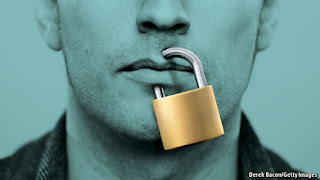Climate Alarmism and the Chinese Government: Is the Pope Backing the Wrong Horses?
It would be understandable if Pope
Francis wanted to have the Catholic Church associated in people’s minds with
issues other than paedophilia, but one wonders whether he has selected the best ones. He has tended towards the political left and populism, so
it should come as no surprise that he is something of a climate alarmist. For
example, according to the United
Nations Climate Change website, on 14 June 2015 he called on
the world’s 1.2
billion Catholics to join the fight against climate change. In a papal encyclical
letter, Pope Francis declared that the science of climate change is clear and
that the Catholic Church views climate change as a moral issue that must be
addressed in order to protect the Earth and everyone on it.
He felt this was necessary to “lift the
planet’s most vulnerable populations, protect development, and spur responsible
growth”. This sounds like climate alarmism to me.
Then there is his relationship with
China. On 22 September 2018 Rome and Beijing signed
an agreement allowing the Chinese government a role in the selection of
bishops in China. One wonders what criteria communist Chinese officials might
employ: knowledge of theology? Moral purity? Or perhaps willingness to be
manipulated? This in a country where government officials are tearing down crosses from churches.
According to Wikpedia:
In 2018,
Argentine Bishop Marcelo Sánchez Sorondo, chancellor of the Pontifical Academy of Social
Sciences, declared that "those who are best implementing the social
doctrine of the Church are the Chinese." Matthew Schmitz replied that this
statement was "not mere naivete" but also exemplified "the way
in which defenses of the "common good" sometimes slip into apologias
for authoritarianism". Cardinal Joseph Zen
described the Vatican-China agreement, intended to normalize the situation of
China's Catholics, as a steps towards the "annihilation" of the
Catholic Church in China.
The recent launch of a
Chinese edition of Civiltà Cattolica was defended by its editor, Antonio Spadaro, a close confidant of Francis, as
follows:
There was an objection that such a choice was being made right now, in
the middle of the pandemic, where are discordant and conflicting voices and
very strong tensions regarding China. I’d say it was maybe the worst possible
moment, and therefore the best moment. This is the time when challenges have to
be accepted and bridges have to be built.
However, the Catholic online
journal Crux sees
it differently:
Probably the main take-away is that no matter [what] people may think,
the Vatican is moving full-steam ahead in its courtship of Beijing, with the
ultimate prize remaining full diplomatic relations, a secure legal standing for
the church, and partnerships on the global stage.
When the whole world
is lining up against China for its handling of the corona virus pandemic, and
with China reacting with hypersensitive abuse, threats and sabre rattling, one wonders whether
this is indeed the best time to be seen to be siding with the Chinese
government.
Harry Wiren




Comments
Post a Comment